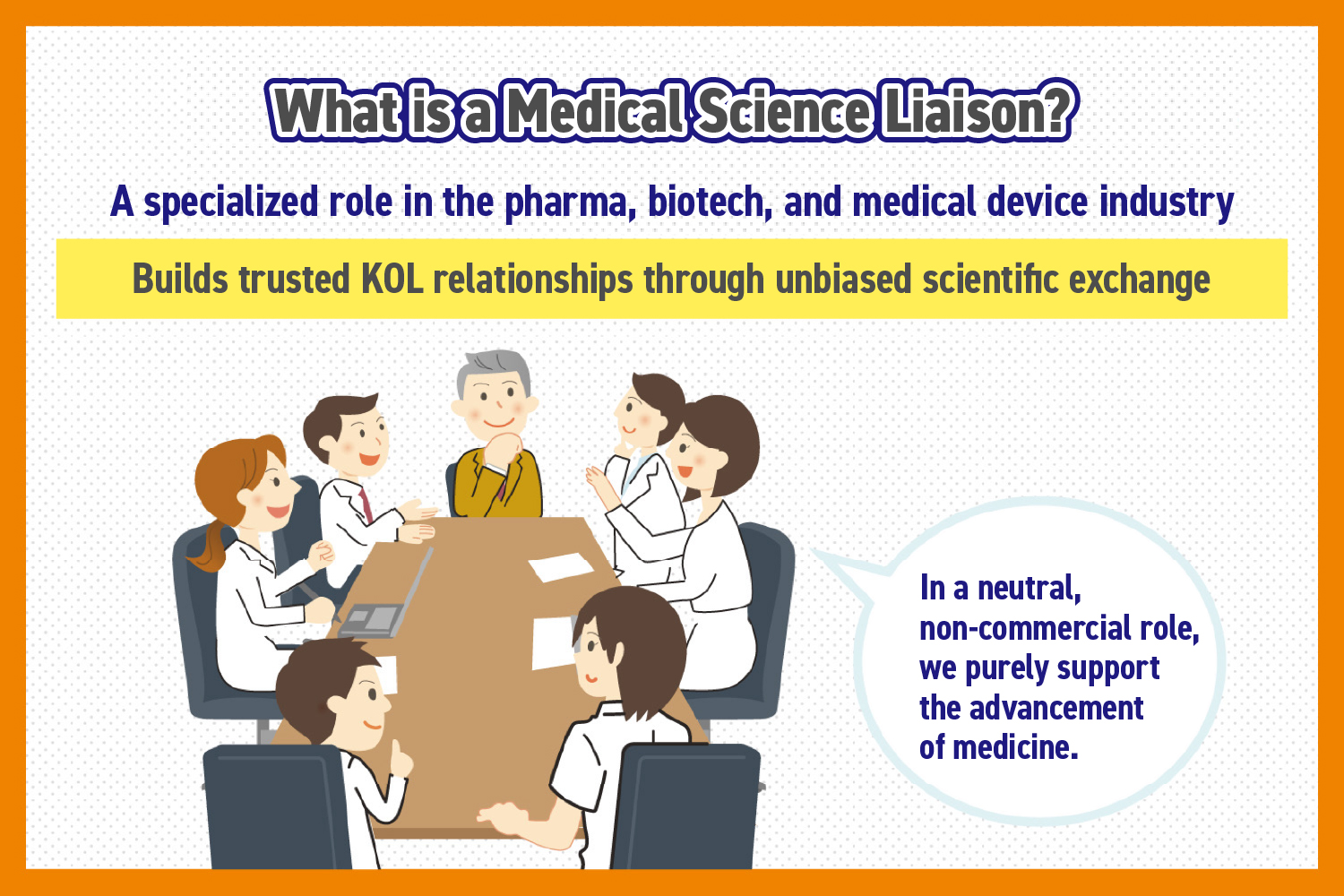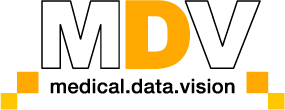What is a Medical Science Liaison (MSL) ? Roles, Responsibilities, and Career Insights
In the pharmaceutical, biotechnology, medical device industries, CRO and other healthcare industries, Medical Science Liaison (MSL) play a crucial role in supporting medical advancements. They act as scientific experts who bridge the gap between research, clinical practice, and healthcare providers. Depending on the industry, they may specialize in therapeutic areas (such as oncology, cardiology, neurology, or rare diseases) or in specific technologies and clinical applications within medical devices.
While the MSL role is well established in the United States and Europe, it remains relatively new in countries like Japan.
This article explains what MSLs do, the skills they need, and the impact they have across life sciences and healthcare.
What is a Medical Science Liaison (MSL)?

An MSL provides scientific and clinical information to Key Opinion Leaders (KOLs) and other healthcare professionals without engaging in sales or promotional activities. Typically employed by pharmaceutical, biotechnology, medical device companies, or by Contract Sales Organizations (CSOs), MSLs focus on information exchange and education to help improve treatment practices. The role emphasizes neutrality and scientific integrity, ensuring that their work supports better healthcare outcomes rather than company profits.
The MSL profession has existed for over 50 years and became known in Japan around 2000. Since pharmaceutical companies began adopting patient-centered healthcare approaches around 2011, the demand for MSLs has increased, making their contributions increasingly important.
MSL Responsibilities
MSLs operate primarily in scientific support and research facilitation. Their main responsibilities include:
Gathering the latest medical information
MSLs collect cutting-edge medical information from conferences, publications, and research studies to ensure they can provide accurate and relevant insights to KOLs. They may also plan or host educational sessions and review gathered information carefully before sharing it with healthcare professionals.
Engaging with KOLs and healthcare professionals
MSLs visit KOLs to provide scientific information and facilitate peer-to-peer discussion. These visits are conducted from a neutral, scientific perspective rather than for sales purposes. MSLs build strong, trust-based relationships with KOLs in their assigned regions or medical areas, which is essential for effective communication and knowledge exchange.
Supporting research and clinical studies
MSLs collaborate with their company’s development teams to support clinical trials, prepare publications and research materials, and act as a communication bridge with physicians involved in research. They may also help with conference planning and the presentation of research findings. The scope of research support can be broad and diverse, depending on the project.
Skills required for MSL
Working closely with healthcare professionals, MSLs need specialized knowledge and abilities. Key skills include scientific expertise, language and communication proficiency, and the ability to build strong relationships with diverse professionals. MSLs must stay current with medical and scientific developments, interpret complex clinical data, and convey information effectively to their peers.
Professional Rewards
Being an MSL requires a high level of skill and involves specialized tasks, making it far from an easy job. However, it offers rewards that are unique to this profession.
Contributing to better healthcare through accurate medical information
MSLs provide information purely for the advancement of medical care. They support KOLs with valuable insights without being influenced by company or promotional interests, contributing directly to improved healthcare outcomes.
Experience in new drug development
By supporting research, MSLs are involved in the development of new drugs. Knowing that their work can help bring treatments for previously untreatable diseases to patients provides significant professional satisfaction.
Involvement in Organizational Development
As a relatively new profession, MSLs may have opportunities to contribute to the creation of MSL-centered teams or new initiatives. Being involved from the start and helping develop these structures is a unique and rewarding aspect of the role.
MSLs Contribute to Medical Advancement
MSLs operate independently of company profit motives, focusing purely on supporting healthcare improvements. By building trust with KOLs and providing neutral, evidence-based insights, MSLs play a vital role in advancing medical practice and improving patient outcomes. Although challenging, this profession is increasingly recognized as essential within global healthcare.
Anyone considering a career in Medical Affairs should explore the scope, required skills, and potential impact of the MSL role before committing.
For More Information, Please Contact Us Here
About Japanese Healthcare System

What you need to know about the healthcare system in Japan before using the data.
SERVICE

In addition to various web tools that allow you to easily conduct surveys via a browser using our medical database, we offer data provision services categorized into four types to meet your needs and challenges: "Analysis reports" "Datasets," "All Therapeutic Areas Data Provision Service," and "Specific Therapeutic Areas Data Provision Service.

© Medical Data Vision Co., Ltd. All Rights Reserved.





